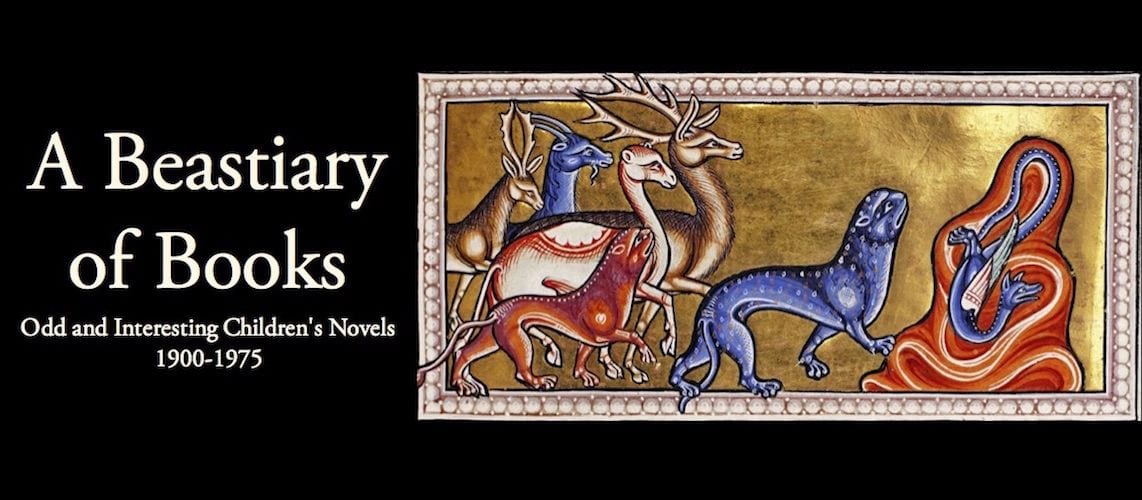There is a boy. He lives in a small midwestern town in the mid-20th century, and he is on a campaign to be allowed a dog. He is self-reliant and enterprising, and likes to tinker with inventions. His name is Henry or Homer.
This is not a genre exactly, but more like a family, whose members resemble each other in different ways and to different degrees. Henry Reed of Henry Reed, Inc. (1958) is perhaps the most prototypical: he lives in a small town, acquires a stray dog, sets up his own “research” enterprise, and of course is named Henry.
But the dog isn’t always a dog — it might be a skunk (Homer Price, 1942), a pair of owls (Owls in the Family, 1962), or a dinosaur (The Enormous Egg, 1956). Though most are set in the North American midwest, a few are in Oregon (Henry Huggins, 1950), New Jersey (Henry Reed, Inc.) or California (The Wonderful Flight to the Mushroom Planet, 1954). The boys in Mushroom Planet are named Chuck and Dave, but they do have a pet chicken and build their own rocket ship. Miss Pickerell also fails the H test, but she loves her cow, goes on science-related adventures, and has nephews named Homer and Harry.
Other H’s include Herbert Yadon (with an uncle Horace) of Herbert (1950), whose permissive parents allow his inventive, scientific, and animal-related schemes to get out of control; Huggins “Huggy” Pindar in The Big Splash (1960), about a group of inventive child entrepreneurs in a small town in Ohio; Hank Roberts of Leave it to Herbert (1963; not the same Herbert of Herbert), whose pet mouse Herbert gets electronic attachments; the inventive Andrew Henry of Andrew Henry’s Meadow (1965); and Homer, Henry, and Harmon in The Mad Scientists Club (1965).
To be fair, Henry Huggins doesn’t have much of the family resemblance — he acquires a stray dog but has no particular inventive tendencies — but really, with a name like Henry Huggins, how can we not include him? (The name might derive from Oz’s Uncle Henry and his clone Gran’pa Huggins of The Magical Land of Noom, 1922. There is also Henry Higgins from the play Pygmalion, 1912, though the movie My Fair Lady didn’t come out until 1956, six years after Henry Huggins.)
More distant relations spiral outward from the center, with 1950’s and ’60’s books about boys wanting dogs (A Dog on Barkham Street, 1960; A Dog So Small, 1962), being inventors (the Danny Dunn series, 1956 onward; The Trouble with Jenny’s Ear, 1960; The Inventions of Alvin Fernald, 1960; Andy Buckram’s Tin Men, 1966), having entrepreneurial and/or animal-related escapades (The Shy Stegasaurus of Cricket Creek, 1962; Risky Business, 1956, about a boy trying his hand at turkey raising), or just having ostentatious H names, like Hugsy Goode of The Alley (1964).
In a followup post I’ll be taking a closer look at Homer Price, the first of this genre, which has some peculiarities all its own.

